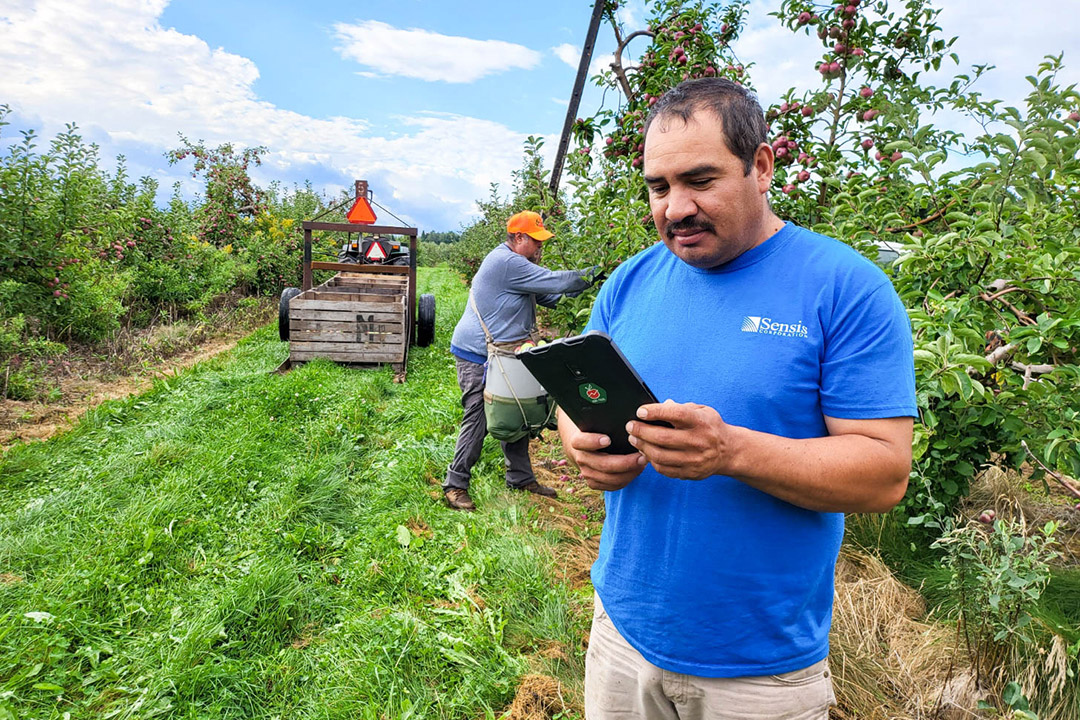Agricultural data-tracking system helps farmers maximize output
RIT incubator company Agri-Trak empowers farmers to make valuable data-driven decisions
Provided photo
Agri-Trak, part of RIT’s Venture Creations business incubator, uses customizable software to help farmers make smart data-driven decisions.
Fifth-generation apple farmer Jamie Sonneville understands the stresses that come with predicting revenue in the agriculture industry. Variables such as crop yields, weather, and costs associated with production and labor all equal unpredictable outcomes. That’s why Sonneville built an intuitive labor management software tool that, in her words, “allows farmers to do what they do best—be farmers.”
Sonneville’s company, Agri-Trak, part of Rochester Institute of Technology’s Venture Creations business incubator, ensures that labor practices are in compliance with the U.S. Department of Labor and optimizes farm operations’ tracking of time sheets and production records. The customizable software system also collects valuable data including farm locations, blocks and rows, produce types, jobs, paid wages, employees, and teams and crews. The result gives farmers a birds-eye view of their operations. In addition, farmers can use Agri-Trak customer success coaches to tweak data to further understand and maximize costs.
In the last 12 months, the company increased its subscribers by 400 percent and its revenue has skyrocketed 500 percent. It also made waves at the 2023 Tech Crunch Startup Battlefield competition in San Francisco, which showcases the top 200 startups from around the world from a field of 3,000 applications, who are recognized as industry disrupters. Sonneville and her team were selected as a top six company.
“We knew that we were on to something big, but we really had no idea that our product would be so well received,” said Sonneville, whose farm is in Pultneyville, N.Y. “I understand that paperwork can be a nightmare and it takes away from managing so many other crucial aspects of a working farm. Farmers are not data analysts. Our tool helps growers make data-driven decisions, save time, effectively negotiate with vendors and, ultimately, take care of their families.”





